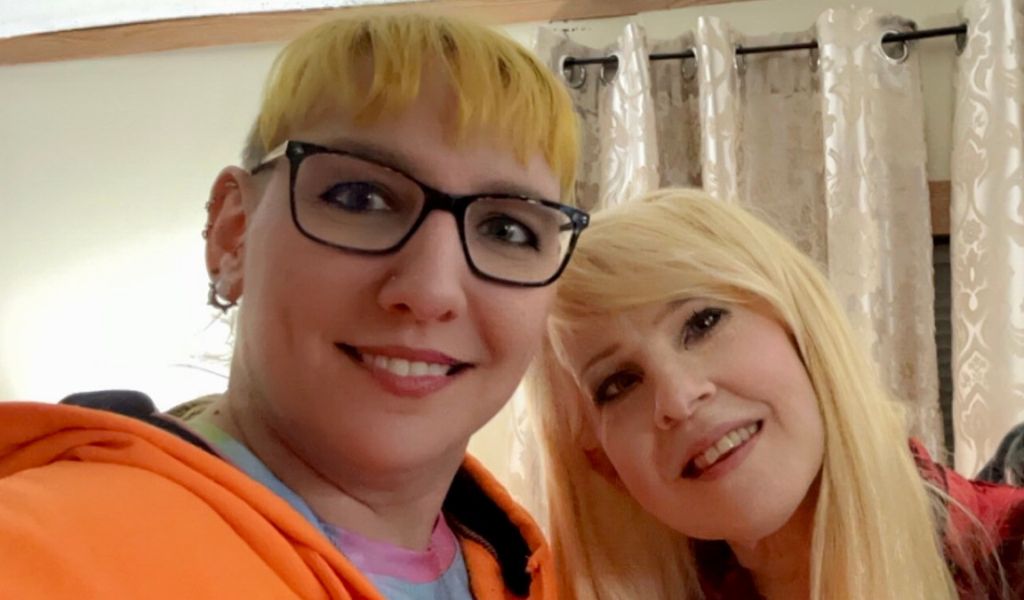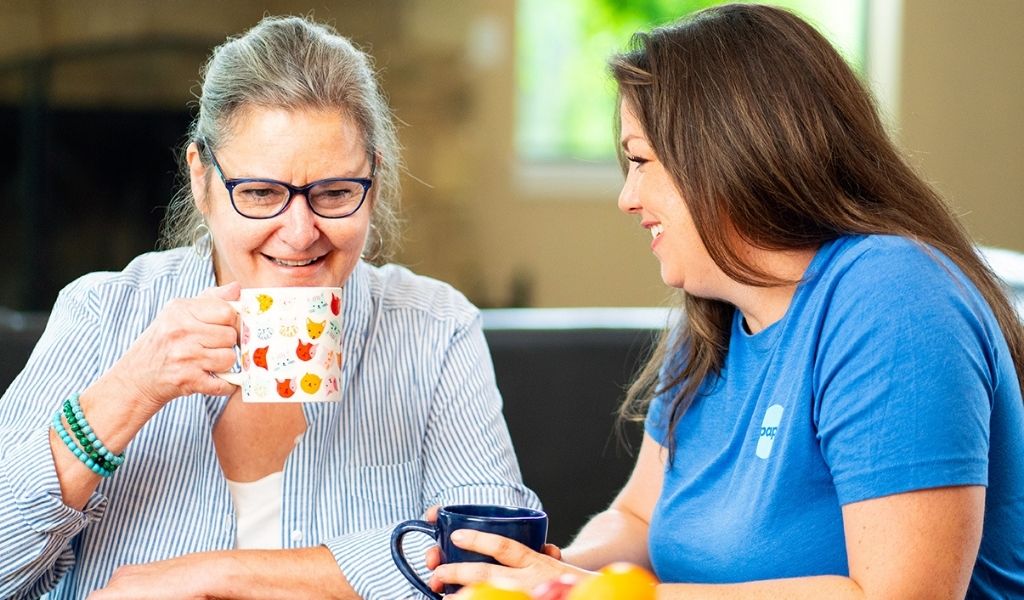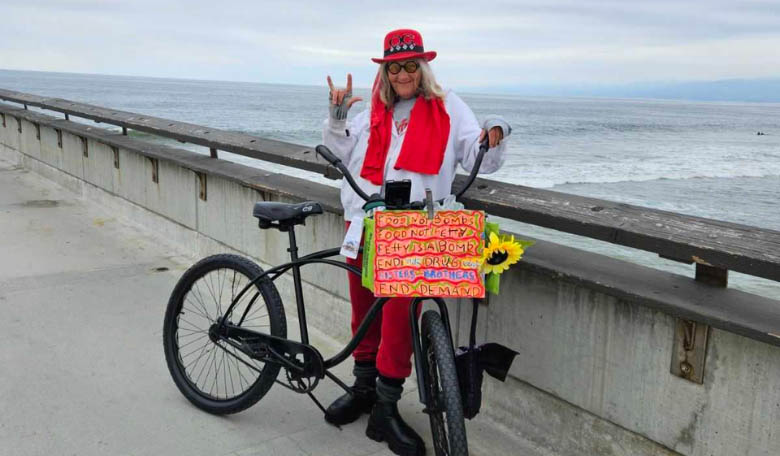
Papa member Sumaiyya, a mother and grandmother, is in her 60s living in Los Angeles. Earlier in her life, she was the sole proprietor of two community organizations. However, because of those assets, she didn’t qualify for care and services she needed at the time and she ended up spending 25 years on and off the streets with little help. During that time, she endured several traumas and struggled with addiction, poor health, mental illness, post-traumatic stress, and isolation.
Sumaiyya grew up with a rare hearing impairment that, until recently, was misdiagnosed as schizophrenia. Doctors assumed she was hearing voices in her head, when she actually had hyperacusis and tinnitus. Certain sounds, like beeps and hums, go straight into her central nervous system and can cause rage attacks that are hard to control. Sumaiyya now has special hearing aids that help her cope, but it’s hard for her to think about those torturous years.
“I never really got encouraged to be well,” she says. “It was just a constant negative environment.”
When Sumaiyya was living on the streets and in detox, she says it was hard to form relationships because "I didn't have access to people who were functional. When I was in detox," she says, "there was nobody there to be my Papa Pal. I only had access to people who were down as low as I was... The isolation was really really awful.”
Sumaiyya enrolled in Papa through her health plan earlier this year and wishes she had access to the service years ago. She describes the revolving door of chronic homelessness, in which people get lonely and go right back to the corner they know.
“Papa is an intervention that can really aid in stopping that revolving door,” she says.
The transformative power of human connection
Sumaiyya has had two years of stability now in community housing. She finally has an apartment of her own, with a bed to sleep in, a door to lock, and people (like Papa Pals) to invite in. She revels in having her Papa Pals visit her at home, where they often enjoy tea, paint, chat, or go out into the community together.
She is learning to use the calendar on her phone and says, “When I look at my calendar and I see Papa on there, there’s this little twinkle that goes off in my heart, like, ‘Oh, I have somebody coming to visit me in my apartment today.’ After years of being alone without anyone to talk to, it heals that loneliness.”
Sumaiyya is no stranger to social services, but she says Papa is different. She’s really grateful for her Papa Pals because they make her feel like their equal, unlike the “hierarchy of professionalism” she’s used to that has always made her feel less-than. Instead of a barrier of superiority—“all of these things that separate us from the people who are dispensing care to us”—Papa Pals are just normal people.
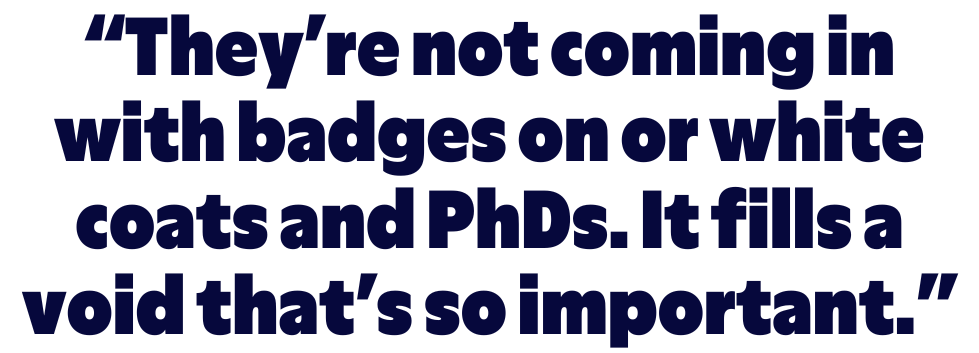
The help with chores or rides to appointments aren’t what mean the most to Sumaiyya—human connection has been the missing piece in her recovery. Having normal conversations “talking about grandbabies or clothes or recipes or movies” is what she craves—and receives—from her Pals. “I’m listening to their lives; they’re listening to mine. I feel like I’m soaking it up like a sponge.”
She can’t stress enough what these simple conversations have meant to her. “What it’s done is allowed me to think that I could still be at least somewhat normal and carry on a conversation even though I have disabilities,” she says. “And feel like I can hold my own or something.” And that feels “really really good.”
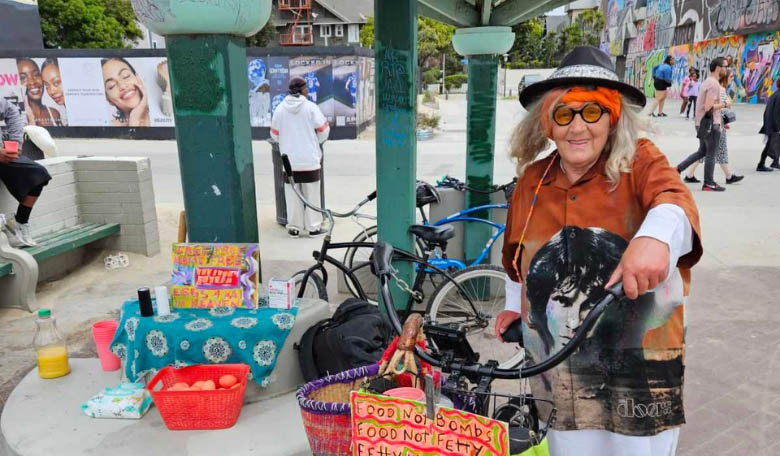
Thoughts from Rosy, one of Sumaiyya’s Papa Pals
Sumaiyya has met with several Papa Pals, and they all had wonderful things to say about her. Rosy is one of those Pals. When Rosy asked Sumaiyya what she wanted to do during a recent visit that happened to be around Sumaiyya’s birthday, Sumaiyya didn’t hesitate. “Let’s have tea,” she said and brought out a big tin box filled with tea—and some teacups with flowers on them. When Sumaiyya lost her home, she also lost the teacups her grandmother had given her. The two of them had been very close.
When she moved into the center, residents were allowed to choose items for their living space. Sumaiyya saw the flower tea cups, and it was like her grandmother herself had come to tell her that everything was going to be okay. She immediately felt peace about her new home and knew things would continue to get better for her. And they have.
Sumaiyya and Rosy enjoyed drinking tea together, and Sumaiyya told stories about her grandmother, even tearing up at one point. Rosy says it was a special visit.
“Sumaiyya is a beautiful, colorful, vibrant woman,” Rosy says. “She has many great stories to share… You just see so much that she’s gone through, but she has remained strong. And yet… she’s still full of life. When you’ve been knocked down by things in life, sometimes it’s hard to get up. I see her and I see colors; I see life.”
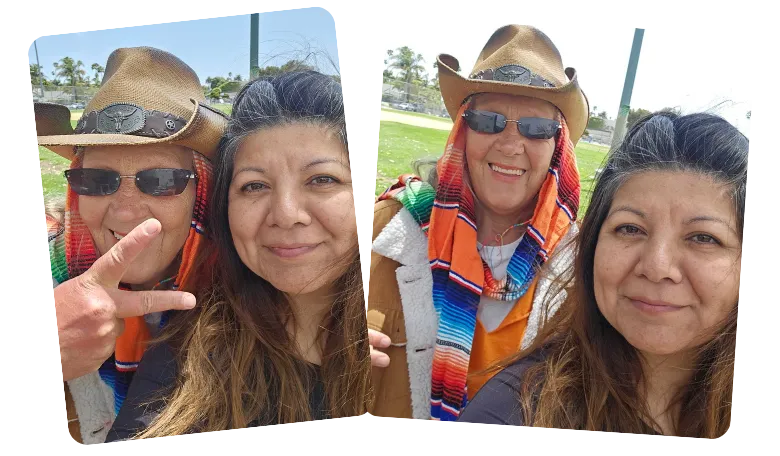
A bright path forward
Sumaiyya is forging connections and is able to take pride in her home and gain confidence in the person she’s becoming. “Papa Pals are a stepping stone for me to feel like I can go and make other friends in other venues and hold my own.” She loves the supportive community surrounding her, and she’s become an integral member of that community.
Sumaiyya has become a late-blooming artist (in addition to a good cook!)—two activities that she says fill her soul. She creates art out of her lived experience. One piece features all of the services that helped her get off the street and back on her feet. She’s even putting together an exhibit that will be on display soon.
Sumaiyya is grief-stricken over how many people are unhoused and suffering as she once was, and she’s writing an autobiography about her life in hopes of helping them. “I’m bound and determined before I die to get my story out there so that we can fill in the gaps in the system. I want people to get the housing and healthcare I’ve gotten.”
She believes that sharing her stories and helping others will give her purpose as well. “I would love to get the respect back from my adult children,” she says. She wants them to see that “Mom’s doing great things again.” The proceeds from her book will go to her kids and grandkids.
Sumaiyya can’t get back all those years she lost on the streets, but she can move forward into a brighter future. And she won’t be moving forward alone. She’s bringing others along with her as she creates and heals and grows.
